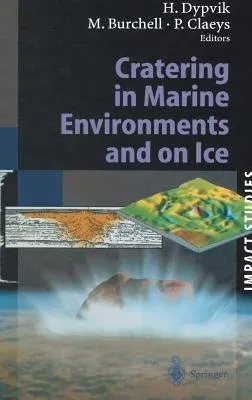Cratering in Marine Environments and on Ice (2004)Hardcover - 2004, 17 November 2003

Qty
1
Turbo
Ships in 2 - 3 days
In Stock
Free Delivery
Cash on Delivery
15 Days
Free Returns
Secure Checkout

Part of Series
Impact Studies
Print Length
340 pages
Language
English
Publisher
Springer
Date Published
17 Nov 2003
ISBN-10
3540406689
ISBN-13
9783540406686
Description
Product Details
Book Edition:
2004
Book Format:
Hardcover
Country of Origin:
DE
Date Published:
17 November 2003
Dimensions:
23.39 x
15.6 x
2.06 cm
ISBN-10:
3540406689
ISBN-13:
9783540406686
Language:
English
Location:
Berlin, Heidelberg
Pages:
340
Publisher:
Series:
Weight:
680.39 gm